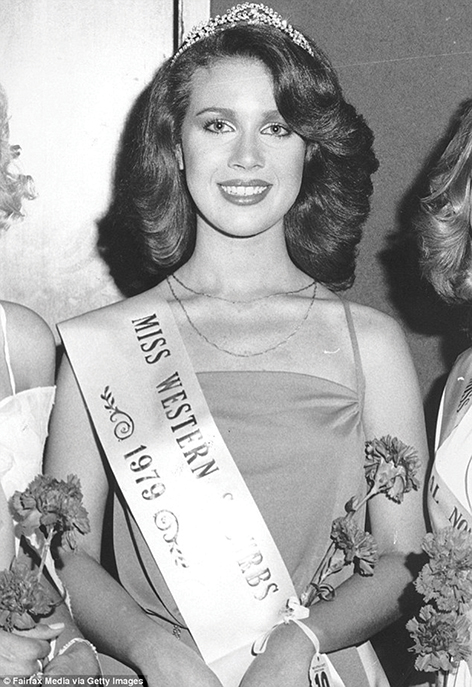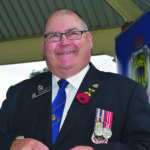I WAS a teenager when five loathsome monsters took the life of beautiful Anita Cobby, and like everyone else old enough to remember this horrific crime, it is etched in my mind forever as a stark reminder that unspeakable evil does exist.
A young nurse in the prime of her life, Anita was snatched from the side of a Blacktown road by a carload of despicable creatures before being raped, tortured and murdered.
The brutality the 26-year-old endured at the hands of the five men devastated her family, reduced the most hardened police officers to tears and broke the heart of a nation.
It has now been 38 years since the crime that shocked Australia and made Anita Cobby a household name for the saddest of reasons.
It was on February 2 1986 that Anita took that fateful walk from Blacktown station to her home. She usually called her father to pick her up, but on this night, the phone box was broken.
The five criminals stopped and she was pulled into the car. After torturing her in what must have been the most terrifying car ride, Anita was taken to a field in Prospect where she was systematically raped and tortured further, before finally having her throat cut by the ring-leader and left to die a lonely death.
News first broadcast into our loungerooms that the young nurse was missing. Then, the devastating news that she’d been found so brutally murdered.
Australia’s collective heart broke all the more when we saw Anita’s parents, Garry and Grace Lynch, who were so lovely and showed so much dignity throughout their ordeal. It hurt to see such sweet, warm-hearted parents in unimaginable pain.
The details of what Anita was subjected to were revealed in an autopsy report. Many people who never knew her, including emergency services, journalists and political leaders set out to read the report – but found the circumstances so horrendous that they couldn’t finish it. One can only imagine how heart-wrenching it was for her parents.
Retired Detective John Wakefield was second in charge (2IC) at Blacktown at the time Anita was found.
“The day her body was located will always be etched in my mind. I remember the crime scene as if it was today,” Mr Wakefield said.
“A murder scene tells a story; the last moments and what they did to her will always stay with me. The look on her face, the state of her body.
“It was such a shock for the man who owned the dairy where she was found. Nobody could expect to come across a body like that.
“When the team of detectives arrived, we found the cattle around her. They were poking her, as if to try to wake her.”
Not long afterwards, Mr Wakefield was transferred to Penrith, but he always kept an eye on the case.
The horror of Anita’s murder will also live in the mind of retired Chief Inspector Gary Raymond forever. He believes the memory of her tragic death delivers a strong message.
“Anita’s tragic passing serves as a message against violence. It has also served as a reminder to women in particular, on safety and security. It became somewhat of a catch-cry from mothers all over the country, ‘don’t walk home alone, remember Anita Cobby.’
“We all wish women could walk anywhere at anytime and be safe.”

Mr Raymond worked around the clock at Blacktown trying to generate leads on who the perpetrators were.
“My main job was to ‘turn the streets over.’ That basically means go talk to the people on the street, including the prostitutes and the drug users.
“The streets talk – part of good detective work is to knock on the doors, go in the pubs, even the brothels – and find out every bit of information you can.”
Anita’s abductors were in a stolen car at the time of the crime, and the ‘streets did talk’ information came from an informant that the Murphy brothers had stolen a car.
Another important piece of information came from a neighbour who noticed a burning smell and then saw them burning clothing in an incinerator.
“A detective’s job is to join the dots. People should always report suspicious activity, even if it seems insignificant. It could just be the missing piece of the puzzle,” Mr Raymond said.
Once arrested, community outrage at the criminals responsible for Anita’s death rose to a level never seen before in this country. The court appearances of the five men (John Travers, Michael Murphy, Leslie Murphy, Gary Murphy and Michael Murdoch) were always packed with members of a very angry public calling for their heads.
“I was upstairs in the detective office, when it came over the speaker that every available officer was to head to the front to address crowd control,” Mr Raymond remembered.
“There was, I’d guess, about 200 people protesting. Blokes on top of the carpark hung a noose. The crowd started chanting ‘Hang the bastards!’ Then they tried to get at the cars that they were in.
“One memory I’ll always have, is of a very elderly lady in the crowd. She was very thin, had grey hair up in a bun – she looked a bit like a nun. She began screaming ‘hang the bastards’ and lunged at the car.
When I asked her to move back, she grabbed my coat and screamed at me, ‘have you got a fu**ing daughter? I have, let me at them!’”
“I understood the emotion. I looked at her and gently said, ‘justice will be done.’ It was certainly a level of anger that I had never seen before and have never seen since.
“People were angry and also afraid. Before we’d arrested the Murphys and were looking for them, blokes were picking up their wives from the station armed with baseball bats. They’d scream, ‘if we find them we’ll cave their heads in!’
Mr Raymond spoke of calling in to see Anita’s parents after the autopsy.
They’d been told the details.
“They were just such lovely, beautiful people,” Mr Raymond said. “I can still see Grace entering the room in her apron. Garry stared at me for a long time, and then grabbed my hands in his and said, ‘Gary, something good has to come out of something so bad.’ We all cried and cuddled.”
All five men, who had over 50 previous convictions between them, would be found guilty and sentenced to life imprisonment, never to be released.
Travers, Murdoch, and two of the Murphy brothers, Les and Gary are in NSW prisons. Michael Murdoch died of a liver condition in February 2019.
The Lynch family endured a nightmare that was so utterly unbearable, yet they focused their time in the subsequent years reaching out to other families struggling to cope with homicide.
They established the Homicide Victims Support Group with Christine and Peter Simpson, parents of Ebony Simpson.
Ebony was just nine years old when she was abducted after alighting from her school bus before being raped and then tossed into a dam in Bargo and left to drown.
Finding themselves to be members of a club nobody would ever want to be in, Anita’s parents and Ebony’s parents were united in a grief that only those who’ve lost their children from horrendous homicide could understand.
Garry and Grace have both passed away now.
Named in her honour, “Grace’s Place” has since opened and is a world-first residential trauma recovery centre for children affected by homicide.
Documentaries on Anita’s murder have aired over the years, and a book has been published called ‘Someone Else’s Daughter.’
Sadly the title came from a quote by Garry Lynch (Anita’s father) who said, “I could wish it was someone else’s daughter, but I can’t, can I? They would then have to go through what we’re going through.”
He was a very decent and honourable man. A stark contrast to his daughter’s brutal killers.






